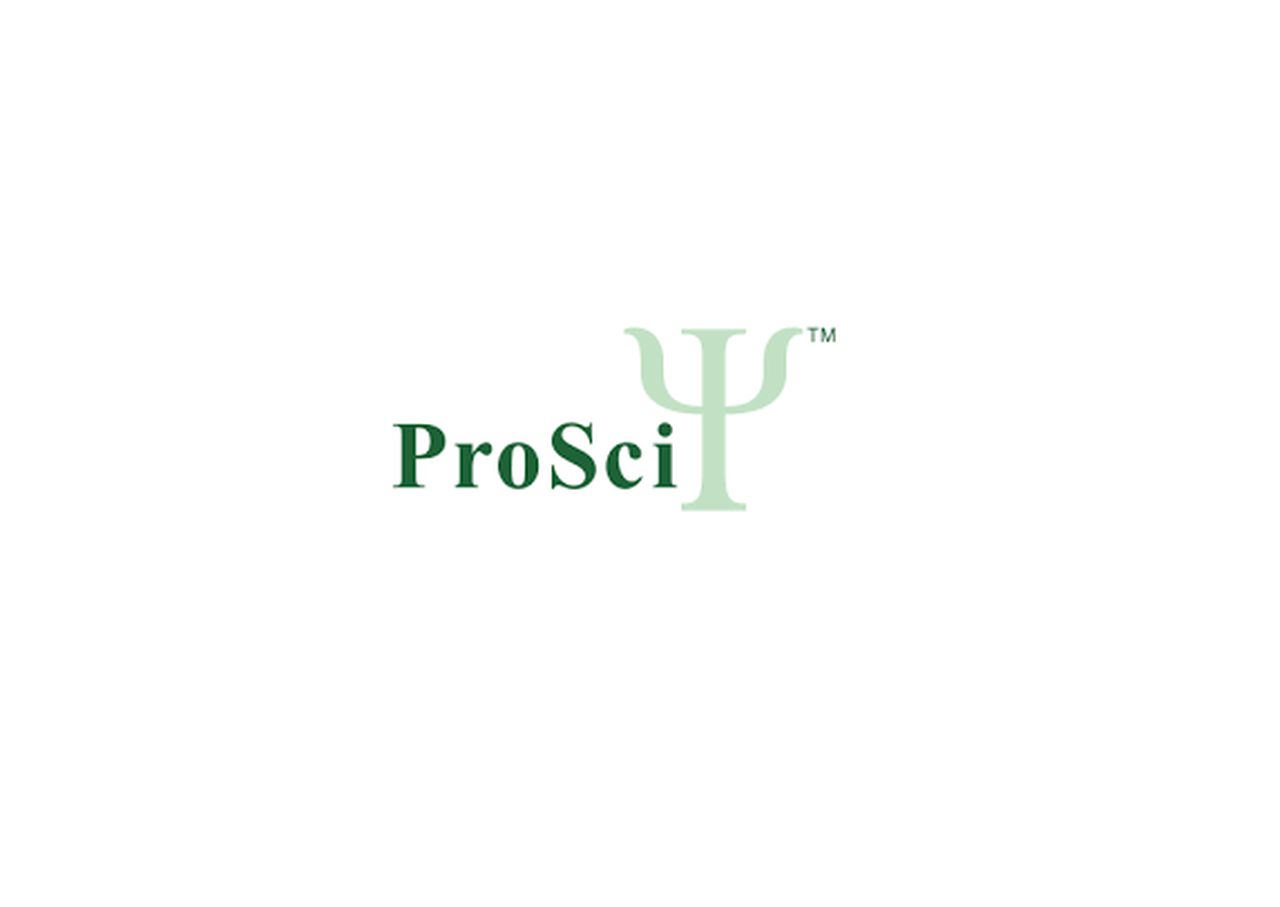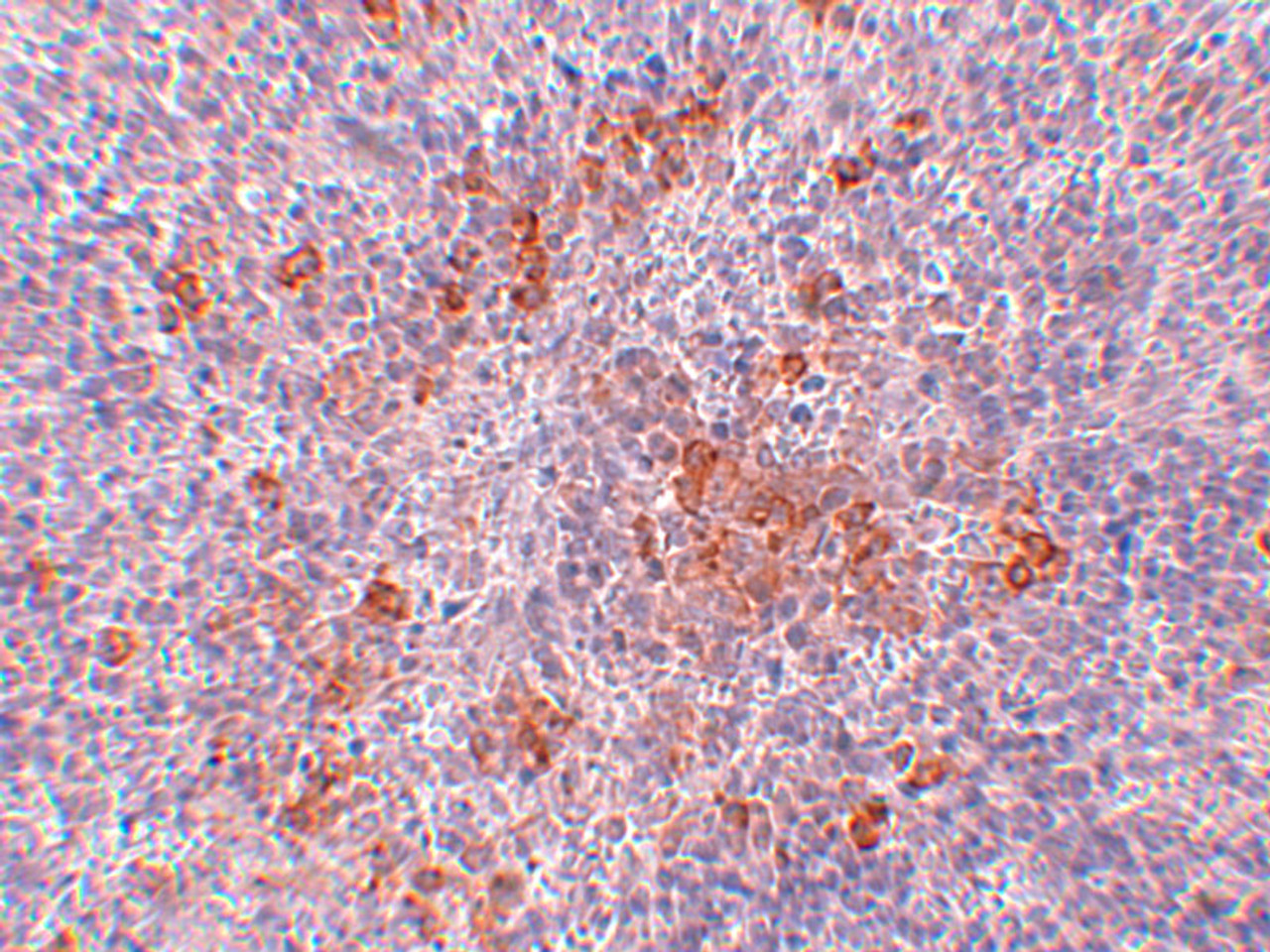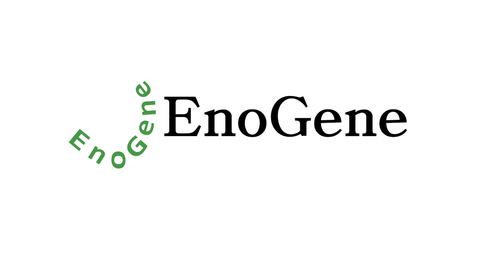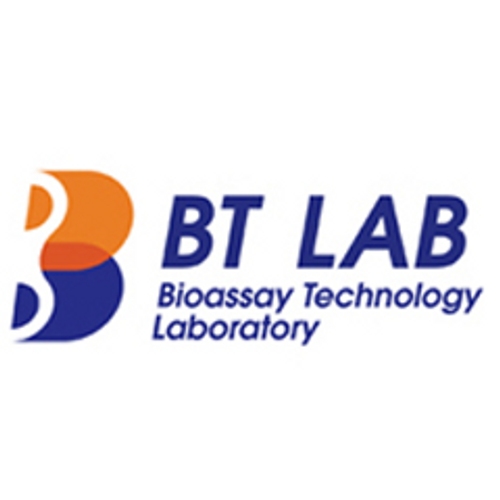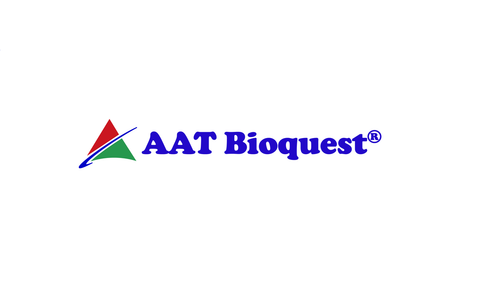Product Description
AGTR1 Antibody | 5391 | ProSci
Host: Rabbit
Reactivity: Human, Mouse, Rat
Homology: Predicted species reactivity based on immunogen sequence: Pig: (100%) , Guinea pig: (100%) , Rabbit: (100%) , Sheep: (94%) , Bovine: (94%) , Chicken: (81%)
Immunogen: AGTR1 antibody was raised against a 16 amino acid synthetic peptide from near the center of human AGTR1.
The immunogen is located within amino acids 210 - 260 of AGTR1.
Research Area: Signal Transduction
Tested Application: E, WB, IHC-P, IF
Application: AGTR1 antibody can be used for detection of AGTR1 by Western blot at 1 - 2 μg/mL. Antibody can also be used for immunohistochemistry starting at 2.5 μg/mL. For immunofluorescence start at 20 μg/mL.
Antibody validated: Western Blot in mouse samples; Immunohistochemistry in mouse samples and Immunofluorescence in mouse samples. All other applications and species not yet tested.
Specificiy: N/A
Positive Control 1: Cat. No. 1405 - Mouse Kidney Tissue Lysate
Positive Control 2: N/A
Positive Control 3: N/A
Positive Control 4: N/A
Positive Control 5: N/A
Positive Control 6: N/A
Molecular Weight: N/A
Validation: N/A
Isoform: N/A
Purification: AGTR1 Antibody is affinity chromatography purified via peptide column.
Clonality: Polyclonal
Clone: N/A
Isotype: IgG
Conjugate: Unconjugated
Physical State: Liquid
Buffer: AGTR1 Antibody is supplied in PBS containing 0.02% sodium azide.
Concentration: 1 mg/mL
Storage Condition: AGTR1 antibody can be stored at 4˚C for three months and -20˚C, stable for up to one year. As with all antibodies care should be taken to avoid repeated freeze thaw cycles. Antibodies should not be exposed to prolonged high temperatures.
Alternate Name: AGTR1 Antibody: AT1, AG2S, AT1B, AT1R, AT1AR, AT1BR, AT2R1, HAT1R, AGTR1B, AGTR1A, AT2R1B, Type-1 angiotensin II receptor, AT1
User Note: Optimal dilutions for each application to be determined by the researcher.
BACKGROUND: AGTR1 Antibody: Angiotensin II is a potent vasopressor hormone and a primary regulator of aldosterone secretion that acts through at least two types of receptors, AGTR1 and AGTR2. It is an important effector controlling blood pressure and volume in the cardiovascular system and plays a major role in the development of the mammalian kidney and urinary tract. AGTR1, the type 1 receptor, is thought to mediate the major cardiovascular effects of angiotensin II and may play a role in the generation of reperfusion arrhythmias following restoration of blood flow to ischemic or infarcted myocardium. AGTR1 has recently been found to regulate the differentiation of bone marrow-derived monocyte lineage progenitors from hematopoietic stem cells, indicating the diversity of the roles of AGTR1.
 Euro
Euro
 USD
USD
 British Pound
British Pound
 NULL
NULL

